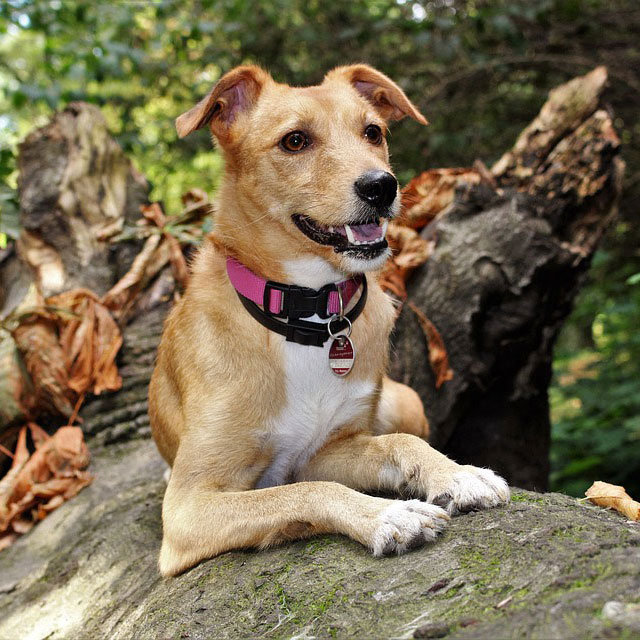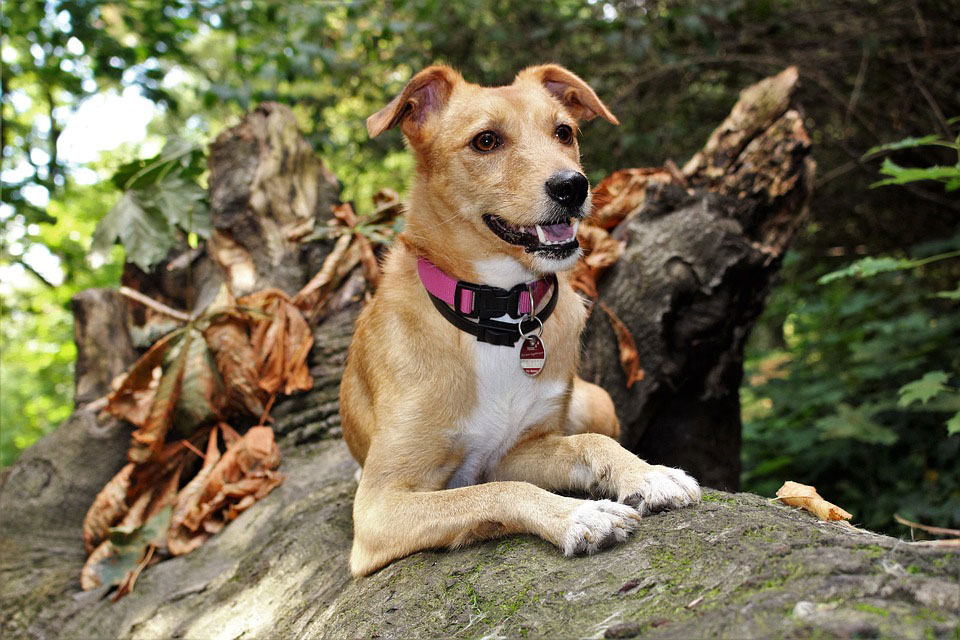
Well, Summer is gone and what looks set to be a warm autumn has arrived. But, with the change in season comes a change in foliage, routines and seasonal items that you may want to be wary of around your dog. Here’s our list of some of those things:
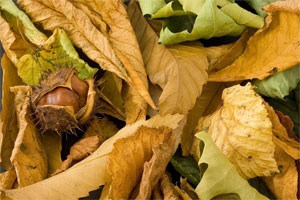 1. Conkers
1. Conkers
We all collect the conkers when they start to fall, but, although conker poisoning in dogs is extremely rare, it’s worth being aware of the signs. If your dog eats a conker you may see signs of gastro illness such as retching, vomiting, drooling and diarrhoea. You may need to treat the vomiting as conkers will cause dogs to vomit quickly. Also, bear in mind that conkers can also cause intestinal blockages.
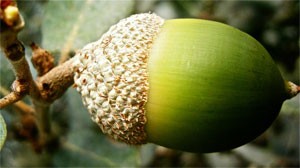 2. Acorns
2. Acorns
Acorns are even more common than conkers, so dogs are exposed to a lot of acorns over Autumn and Winter. Acorns contain a toxic ingredient, thought to be tannic acid, which can cause liver and kidney damage. Again, look for vomiting, diarrhoea, abdominal pain and lethargy, and, again, they can cause intestinal blockages.
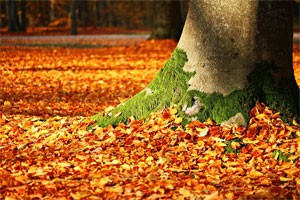 3. Fallen Leaves
3. Fallen Leaves
Dogs and kids love to rustle in the piles of fallen leaves in the Autumn, but these piles of damp leaves can develop bacteria and mould. If your dog eats this then it can lead to an upset tummy.
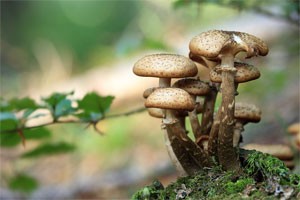 4. Mushrooms and Toadstools
4. Mushrooms and Toadstools
Just like in humans, some mushrooms are highly toxic to dogs. However, it’s really difficult to distinguish between the harmful and harmless ones. So, the best thing to do is be vigilant around any mushrooms or toadstools and try to keep your dog away from them altogether.
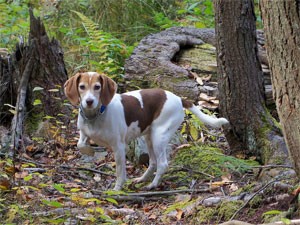 5. Seasonal Canine Illness
5. Seasonal Canine Illness
This mystery illness generally appears between August and November and can affect any dog, regardless of age, size or gender. It appears following woodland walks and can be very severe. The onset of the illness is extremely quick (usually within 72 hours of the walk) and general symptoms include sickness, diarrhoea and lethargy. If you suspect your dog may have Seasonal Canine Illness then you should contact your vet immediately.
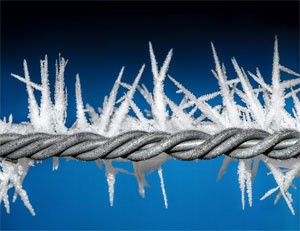 6. Antifreeze
6. Antifreeze
As the weather gets colder, the more use there is of antifreeze or ethylene glycol, which can leak from car radiators. Ingestion of this is extremely dangerous, but its sweet taste may attract your dog. The initial signs are an appearance of drunkeness and even a small quantity can cause kidney damage and sometimes be fatal. If your dogs eats any antifreeze you should get them to the vets immediately, as the quicker it is treated, the better prognosis.
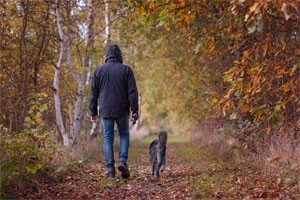 7. Exercise
7. Exercise
It may be an obvious one, but as the weather worsens and the daylight dwindles, your dog gets less exercise than he does in the summer months. It’s worth monitoring their weight and food intake during these months and you may even want to invest in a high res dog jacket or collar light to allow you to walk a little later in the evening.
 8. Luminous Necklaces and Glow Sticks
8. Luminous Necklaces and Glow Sticks
Over Halloween, bonfire night and coming up to the party season, people use a lot more glow sticks, and, unfortunately, often discard these inappropriately. The chemicals within these sticks will irritate your dog’s gums a lot, causing dribbling, frothing, vomiting and possibly stomach pain. However, although these might sound, and look, a little dramatic, ingestion of these chemicals are unlikely to cause any significant or long term problems.
 9. Chocolate
9. Chocolate
It’s pretty common knowledge that chocolate is poisonous to dogs, but around Halloween there is a considerably increased amount of it around, so it’s worth being extra vigilant. The offending item within chocolate is a stimulant called theobromine, which can affect the heart, central nervous system and kidneys. It is also found in high quantities in dark chocolate. Symptoms include vomiting, diarrhoea, rapid breathing, increased heart rate and seizures. These will begin to occur within 4-24 hours of your dog eating chocolate. If your dog does ingest chocolate and displays any of these symptoms we advise taking them to a vet as soon as possible.
 10. Arthritis
10. Arthritis
Just as with humans, signs of arthritis start to appear as the weather gets colder. You may notice your dog licking at its joints, having trouble jumping in and out of the car, or looking a little stiff when they first get up. There are lots of treatments for arthritis, including various supplements, that can help treat the condition and slow its onset.
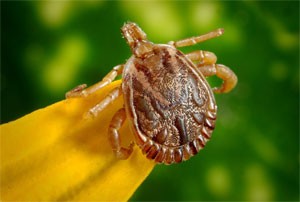 11. Ticks
11. Ticks
There is always a rise in the number of ticks in Spring and Autumn as they love damp but mild conditions, and the change in the UK climate has only served to increase these numbers further. You shouldn’t try to pull a tick off your dog as the head easily breaks off and becomes embedded in the skin, which can cause infection. The best thing to do is invest in a tick hook.
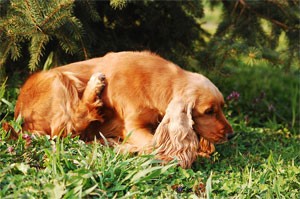 12. Fleas
12. Fleas
Fleas are usually picked up during the summer months, but once the lovely warm central heating is turned on, the little blighters start breeding, and fast. They love to live in carpets and cracks in wooden floors and actually spend very little time on your dog itself.
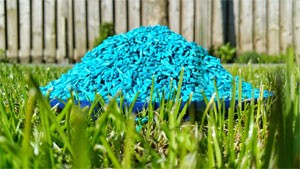 13. Rat Poison
13. Rat Poison
When temperatures fall, mice and rats start to look for shelter in our homes, garages and sheds, so people start to put down poison. Unfortunately, these poisons are just as harmful to dogs as they are to rodents and the effects can be delayed for anything from days to weeks. Symptoms include lethargy, panting, pale gums and dark blood in stools. If you think your dog has ingested rat poison, take it to the vets straight away so they can begin treatment at the earliest opportunity.
 14. Fireworks and Storms
14. Fireworks and Storms
Not all, but some dogs suffer from severe sound phobias and, come October, the firework season sets in and now seems to last into the new year, causing a lengthy period of potential distress for your pet. Heavy storms can also have a similar effect on your dog. Playing calming music whenever there are fireworks or a storm can help, but you can also talk to your vet about the possibility of using anti-anxiety medication or even sedatives in extreme cases.
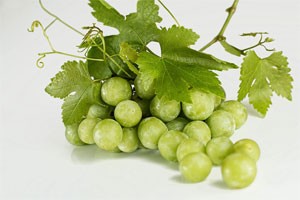 15.Grapes and Raisins
15.Grapes and Raisins
As the festive season approaches we tend to use a lot more grapes and raisins in our recipes. However, these can cause kidney failure in animals, even when only a small quantity is consumed.

